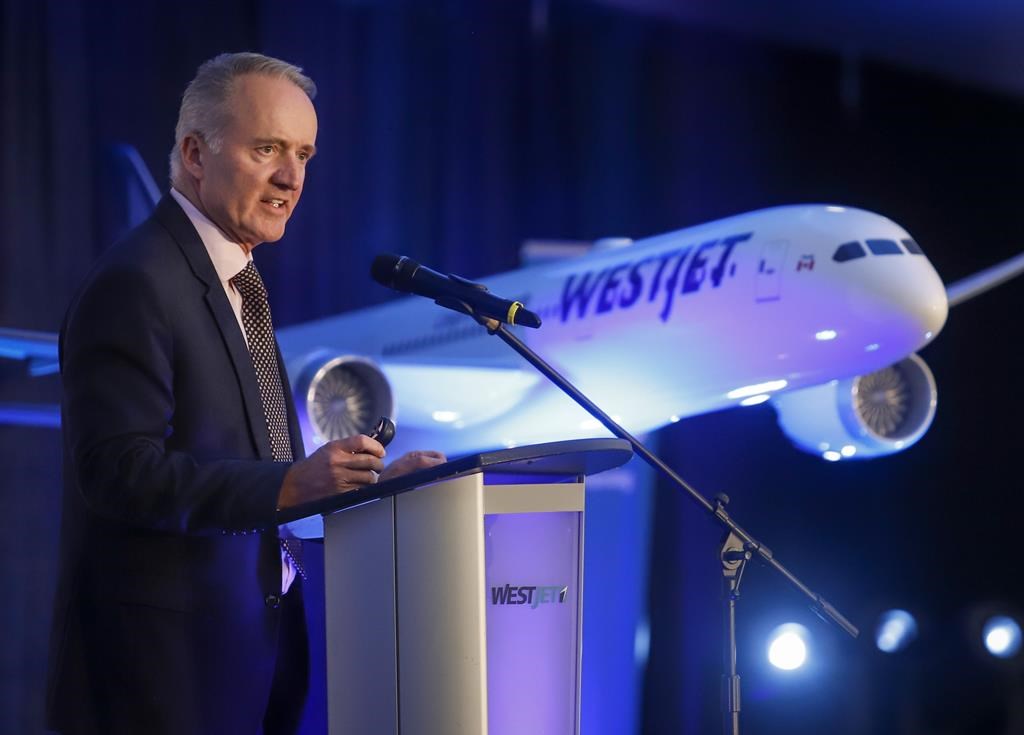WestJet chief executive Ed Sims says the grounding of the Boeing 737 Max is having a “substantial negative impact” on the airline, even as the company reported robust earnings in its first full quarter without the fuel-efficient jetliner and on the cusp of its acquisition by Onex Corp.

In a phone interview, Sims said the grounding — now expected to continue at least through November — has forced WestJet to increase spending on fuel and cut its routes.
Sims declined to quantify the financial hit, saying he is in discussions with Boeing about the “substantial loss” of WestJet’s 13 Max 8s, which comprise about 10 per cent of the carrier’s seat capacity.
WestJet nonetheless beat analysts’ expectations with a 380 per cent profit increase year over year to $44.3 million last quarter, as a boost in passengers bumped up revenue 11 per cent to $1.21 billion.
Analyst Cameron Doerksen of National Bank of Canada says in an investor note the grounding will hinder capacity growth and raise expenses for Canadian airlines, but that lower jet fuel costs and a stronger Canadian dollar may help offset those headwinds.

Get daily National news
On Friday, Alberta’s superior court approved the $3.5-billion deal between WestJet and Onex Corp., which expects to complete the buyout following further regulatory green lights later this year.
Authorities across the globe banned the Boeing aircraft from their skies last spring after two crashes — in Indonesia in October and Ethiopia in March — killed all 346 passengers aboard, including 18 Canadians.
WestJet says it found replacement aircraft for about 700 of the 1,000-plus 737 Max departures scheduled in June, the final month of the second quarter.
Sims said a sale of regional carrier Encore or budget offshoot Swoop are not on WestJet’s agenda at the moment, and that no layoffs of its 14,000 employees will stem from the buyout.
WestJet, founded as a no-frills regional upstart in 1996, has set its sights on Air Canada in recent years, challenging the carrier’s dominance on international routes by adding transatlantic flights, wide-body planes and premium fares.
The airline has also grappled with unionization and higher costs, which have offset some of its revenue growth. The company is expected to earn a per-share profit of $1.24 this year compared to $2.92 in 2015, according to analysts polled by financial markets data firm Refinitiv.







Comments